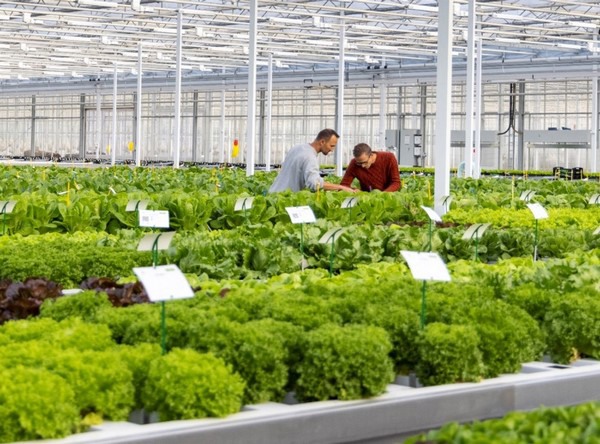Rijk Zwaan’s turnover grew across almost all its crops and regions. Currently, they employ around 3,600 people, with 1,550 based in the Netherlands and 2,050 employees across its 37 subsidiaries worldwide.
Expansion of research, breeding, and production activities
The company planned investments in research, breeding, and production capacity in 2020/2021. “In the last financial year, we opened a new breeding facility for tomatoes, peppers, and aubergines in De Lier and a new location for hydroponic lettuce in Dinteloord. We also started making the preparations to expand our seed processing and storage facilities in De Lier,” says Ben Tax, board member and co-owner of Rijk Zwaan. Over the past year, Rijk Zwaan has also expanded its research and breeding facilities in countries including France, Japan, Spain, and Turkey, and has invested in bigger production facilities in Mexico.

Key role for technology
Rijk Zwaan reinvested €143 million, approximately 30% of its revenue, in research and development last year. “On average, vegetable breeding takes between six and 16 years. Thanks to technologies such as artificial intelligence, we’re able to accelerate the breeding process to provide growers faster access to innovative new vegetable varieties,” explains Ben Tax. Technology plays a key role at Rijk Zwaan, not only in research and breeding, but also in how the company maintains contact and collaborates with partners and customers. In June 2021, for example, Rijk Zwaan launched its first webshop, in Ukraine, and the company extended its use of e-learning platforms to share technical knowledge with growers in India and Germany.
Innovating for a sustainable food supply
"As the level of knowledge rises and new technologies are introduced, vegetable production methods are changing. That process is being accelerated by governmental initiatives, such as the European Green Deal and the Farm to Fork Strategy. Our role is to breed vegetable varieties that are aligned with new production methods and are also strong against diseases and pests,” he adds. Rijk Zwaan is also responding to cultivation-related trends such as mechanical harvesting, organic production, the reduced use of chemicals, and new methods like hydroponics, as well as consumer trends such as convenience and snacking, by launching numerous new vegetable varieties.
Collaboration supports agility
The primary goal for the family-owned company is to offer all Rijk Zwaan employees an enjoyable and long-term job. “Thanks to our decentralized decision-making structure and our workforce of 3,600 motivated and dedicated employees, we remained agile in the past year. Together, we are focused on providing top-quality vegetable seeds and service to our partners. That’s how we contribute to Rijk Zwaan’s mission of ‘Sharing a healthy future’, and that mission will remain unchanged,” concludes Ben Tax. Over the next five years, Rijk Zwaan expects to create approximately 800 more jobs in the Netherlands and across its subsidiaries.

 Rijk Zwaan
Rijk Zwaan